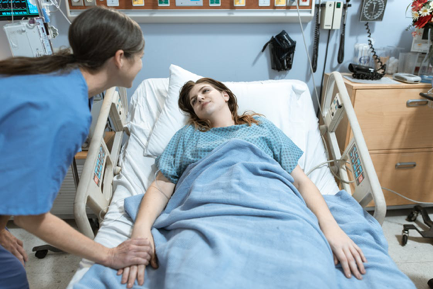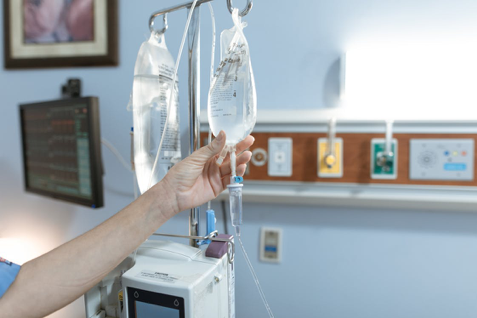What are the causes and treatment for urinary incontinence? Urinary incontinence is a condition involving the loss of urine. This is a common condition, but many people experience humiliation while talking about it. Therefore, they do not consult a doctor if they notice any symptoms. Remember, treating urinary incompetence is not a big deal. You should seek help from a professional urologist to treat your condition. They will suggest suitable medical or alternative interventions.

(Source)
Women develop this condition more often than men. A common symptom of urinary incontinence is urinary leakage. You experience leakage due to muscle contraction and relaxation in your bladder. This results in the involuntary release of urine, which is hard to control. UI is not a disease, but you may experience this condition because of an underlying medical condition.
The Urology Care Foundation suggests that women have higher chances for the development of this condition. Because their urethra is shorter, they can easily develop urinary incontinence. Women have fewer muscles in their bladder to hold urine. So any damage or weakness in the urethra can cause the condition.
Causes of Incontinence
The causes depend on the type of the condition:
1. Stress Incontinence
Here are some factors that cause stress incontinence:
- Obesity
- Age
- Surgical procedures such as hysterectomy
- Childbirth and pregnancy
- Menopause because the decrease in estrogen level weakens the urethra’s muscles
2. Urge Incontinence
Factors include:
- Enlarged prostate irritating urethra and dropping bladder
- Cystitis
- Parkinson’s disease, multiple sclerosis, stroke, and other neurological conditions
3. Overflow Incontinence
You may experience overflow incontinence because of blockage or obstruction to the bladder. Here are some reasons for obstruction:
- Urinary stones
- An enlarged prostate gland
- Constipation
- A tumor
- Urinary incontinence surgery
4. Total Incontinence
The causes for this type of incontinence are:
- A spinal cord injury
- An anatomical defect
- A fistula
Other Causes of Incontinence
Here is some other cause for incontinence development:
- Alcohol
- Some medications such as sleeping tablets, muscle relaxants, and sedatives
- Urinary tract infection
Treatment for Urine Incontinence
The treatment may depend on different factors including your mental state, general health, age, and type of incontinence.
1. Stress Incontinence
You can learn and practice Kegel exercises for strengthening the pelvic floor muscles and urinary sphincter. When these muscles are strong, you can control urination.

(Source)
2. Bladder Training
You can regain the ability to control your bladder using bladder training. Here are some techniques you can try to control your bladder:
- Delaying the Event
These techniques help you control the urge to urinate. It helps to treat frequent urination due to incontinence.
- Double Voiding
You can control urination by minimizing the duration of urinating and waiting for a couple of minutes to go again.
- Toilet Timetable
You can make a timetable and set the time for urination such as after every two hours.
3. Medications
Your urologist will recommend medication for treating incontinence. They may also combine the exercise or techniques along with medications. These medications include topical estrogen, a tricyclic antidepressant, and anticholinergics.
4. Medical Devices
Here are some devices that women can use to control incontinence:
- You can prevent leaking by inserting the urethral device in the urethra after urinating.
- Botox in the bladder muscle can help you if you have an overactive bladder.
- You can insert and wear pessary all day long to prevent leakage.
- Injecting tissues to keep the urethra closed.
- Sacral nerve stimulator emits an electrical pulse to control the bladder.
- Using radiofrequency therapy a surgeon will heat the lower urinary tract for better urinary control.
5. Surgery
If none of the above therapies work, you can undergo surgery. Discuss this option with your doctor if you plans on giving birth. A professional surgeon will diagnose your condition and suggest the best surgical option that will not affect your upcoming delivery.
- The surgeon may include an artificial valve or sphincter to control urine flow.
- Colposuspension is a surgery wherein the surgeon lifts the bladder neck, relieving stress incontinence.
- During the sling procedure, the surgeon will support your urethra with a mesh, preventing urine leakage.
Treatment for Incontinence: Conclusion
Many other treatments can help control urination and prevent incontinence. Here at Fifth Avenue Urology, we offer treatment for numerous urological disorders. Offering high quality treatment and care, our clinic is one of the best in New York City. So give us a call now and make an appointment to discuss your condition.
Schedule an appointment with us today. Call 212-675-3186 and speak with our expert urologists.

[…] a list of several types of incontinences that affect both men and […]
[…] and help patients deal with symptoms. But, when oral medications fail, patients have to discuss the possible treatment options to solve the urge incontinence and overactive bladder […]
[…] Treatment for incontinence can be difficult to pin down since various factors could contribute to the feeling of incontinence. Adult diapers are a popular solution, as they can also help people who can wet the bed during sleep. Other treatments for this condition exist, and you should discuss all options with a urologist. […]